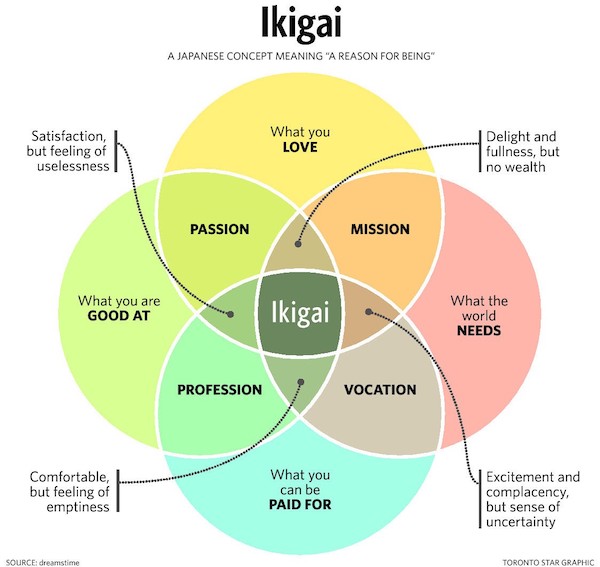Let Neuroscience help you being more productive & happy
In this capitalism era there is always the struggle to be more productive to be ahead of your competitors. Since we can’t change that (yet), here I’ll show you some tips to increase your brain health which will help with your productivity & happiness. Many tips come from Neuroscience (Brain Health Institute) and others from my own experience. Let’s get into it:
Physical activity
Yes, doing exercise is the best way we know for brain health, better than any other cognitive activity. You just need to find what you like and add it into your daily routine.

Cognitive Activity
Exercise is better, but that doesn’t mean you shouldn’t exercise your mind as well. Best case scenario is that your work has any form of cognitive activity. Learn a new language, learn a new skill, play a video game (don’t overdo it) [1] or just go to a place you’ve never been.

Diet
Your diet plays a big role but every person is different (nutrigenomics). You should find which foods work best for you. I’m sure eating pizza & soda won’t help with your concentration. Salmon & salad probably will 😏

Socialization
You need a balance in life, and you shouldn’t be always working. Taking care of your inner circle (friends & family) is a priority and also good for your brain health. We are social animals after all 🐒

Sleep
This may be the most important factor. Even if you do everything right in this list but have a bad night’s sleep all will fall apart… I’m sure you’ve experienced this. Your mood and learning abilities will be a lot worse.
In fact, we’re the only species that are depriving sleep in purpose, and nature couldn’t have developed a mechanism to circumvent this situation. You should know that sleep is critical for your glymphatic system, which “cleans” your brain of waste during the night. Even some elite players know the importance of sleep and sleep in the range of 10 hours per day, which is also important for recovery.
Ray Allen gave a simple tip that you could try doing: Go to bed early (between 9pm-11pm), you’ll notice the next day you are motivated and with more energy.

General Health
You can’t perform well if you’re sick (duh!), Easy to say, but still, many people suffer from stress and anxiety these days. If you’re stressed your immune system won’t work at 100%, so put your health as a priority and not your work.

Vital Plan
You must have a plan, you must find a reason for living, or the so called “Ikigai”. Many just don’t know and not have that self awareness. If you don’t know what you want to do in life you need to pause and think, instead of going on autopilot with daily routines. From Robert Greene words:
“Just being aware that you now have a plan is enough to lift you out of that depression”
It’ll be much easier to endure life if you have a plan and you follow it step by step. Petty concerns won’t matter now 🤷

Views to Nature
It’s preferable that in your work you have views to nature. Your attention will be far better. This has been found in a study where an attention-restoring experience can be as simple as looking at nature [2]
It is also important that you are as close to a nature setting as you can be, since the quality of the air in your workplace can make a huge difference. For instance, it’s been shown that with exposure to lower levels of Volatile organic compounds (VOCs) or CO2 your cognitive performance increases [3]. Another reason to escape from big polluted cities.

Don’t check phone 1st hour in the morning
This will help you not being reactive to your phone and avoid training your brain to be distracted. Even just avoiding your phone the first 30 minutes will help. Jim Kweek gives this advice in the following video:
Work with Sprints and not Marathon
It’s been found in recent research that we are more productive if we work in brief “stints” rather in marathon style (see detailed blog post about in [4]; if your surname is Kipchoge you’re cleary an outlier)
Just working from 9 to 6 doesn’t make sense from how our brains work, is just something cultural. It’s way better if you have breaks in between that refreshes your mind, like exercising, meditating, taking a walk, etc. Also if you possess a different chronotype you may feel more productive in the evening rather than in the morning.
Great achievers didn’t work long hours and spend the whole day at work, you also need to enjoy your life, and as I like to say even if you’re not working your brain has “background workers” which are working for you without noticing. I’m sure your best ideas had come from relaxation periods and not from hitting your head on the desk table.

References
[1] Kühn S, Gleich T, Lorenz RC, Lindenberger U, Gallinat J. Playing Super Mario induces structural brain plasticity: gray matter changes resulting from training with a commercial video game. Molecular Psychiatry. 2014;19(2):265–71.
[2] Tennessen CM, Cimprich B. Views to nature: Effects on attention. Journal of Environmental Psychology. 1995;15(1):77–85.
[3] Schmidt S. Brain Fog: Does Air Pollution Make Us Less Productive? Environmental Health Perspectives. 2019;127(5):052001.
[4] https://medium.com/feel-the-blog/want-to-feel-more-productive-try-not-working-b16b706db9f4
* Awesome photos come from https://unsplash.com/